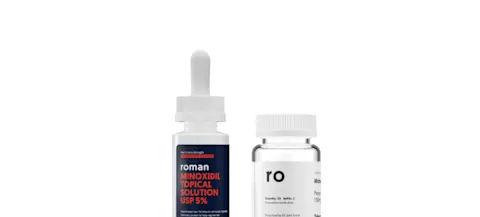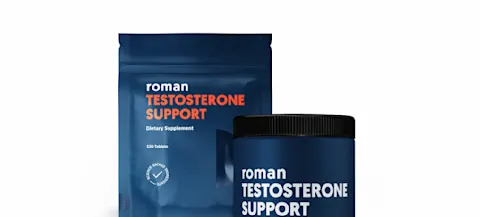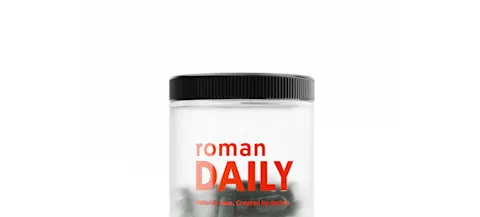In stock
Oral Minoxidil, Delivered to Your Door
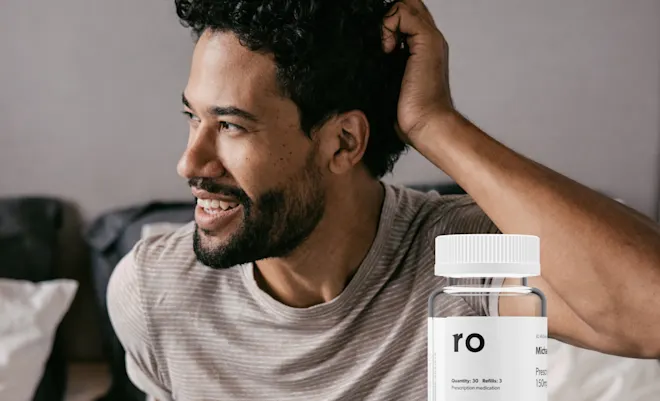
In stock ready to ship
Simple once-a-day tablet
Not associated with sexual side effects
No messy application
Non-hormonal treatment
Oral minoxidil may cause serious side effects that impact the heart, including pericardial effusion and tamponade. When tested on animals, minoxidil caused lesions of the heart as well as other adverse heart effects. See Important Safety Information and Warnings.
Convenient, once-a-day tablets that contain the same active ingredient as topical minoxidil
While topical minoxidil is FDA-approved to treat hair loss and is available without a prescription, oral minoxidil is considered “off label” and requires a prescription.
Oral minoxidil is an off-label treatment for men’s hair loss
Healthcare providers have the discretion to prescribe medications off-label if they believe it is an appropriate course of treatment for a particular patient. Learn more about off-label treatment.
Side effects may include low blood pressure and leg swelling
The most common side effect is hypertrichosis (additional hair growth on the face or body). Read through the full Important Safety Information (including a boxed warning).
More on oral minoxidil
What is oral minoxidil?
The active ingredient in oral minoxidil is the same as the one in topical minoxidil (generic Rogaine). While topical minoxidil is FDA-approved to treat hair loss and is available without a prescription, oral minoxidil is considered “off label” and requires a prescription.
Oral minoxidil is FDA-approved (at higher doses) to treat high blood pressure. Doctors began prescribing low-dose oral minoxidil tablets as a convenient, once-a-day, non-hormonal hair loss treatment because in clinical trials studying higher doses of oral minoxidil for high blood pressure, a large percentage of patients experienced “elongation, thickening, and enhanced pigmentation of body hair,” including on the scalp.
Healthcare providers have the discretion to prescribe medications off-label if they believe it is an appropriate course of treatment for a particular patient. Learn more about off-label treatment here.
How does minoxidil work?
The jury is still out on exactly how minoxidil works with regards to hair loss. While the exact mechanism is not fully understood, it’s thought to extend the growth phase of hair follicles and increase the size of hair follicles, which is thought to promote hair regrowth.
Minoxidil is also thought to relax smooth muscle in blood vessel walls, causing them to widen and increase blood flow. This may be one of the ways that minoxidil works to stop or slow hair loss and, in some cases, maybe even regrow hair.
Who is oral minoxidil for?
Many patients find it easier to take one pill a day vs. applying a topical treatment twice a day. A simpler routine can help to improve treatment adherence and consistency (in other words, it’s easier to make and keep a daily treatment habit), which supports better results.
Oral minoxidil may also be preferred by men who do not want to risk the known slight chance of sexual side effects from taking finasteride.
While a patient’s preference is always taken into consideration, treatment recommendations will be primarily informed by the individual’s medical history along with the contraindications and side effects of finasteride and oral minoxidil.
The history of oral minoxidil
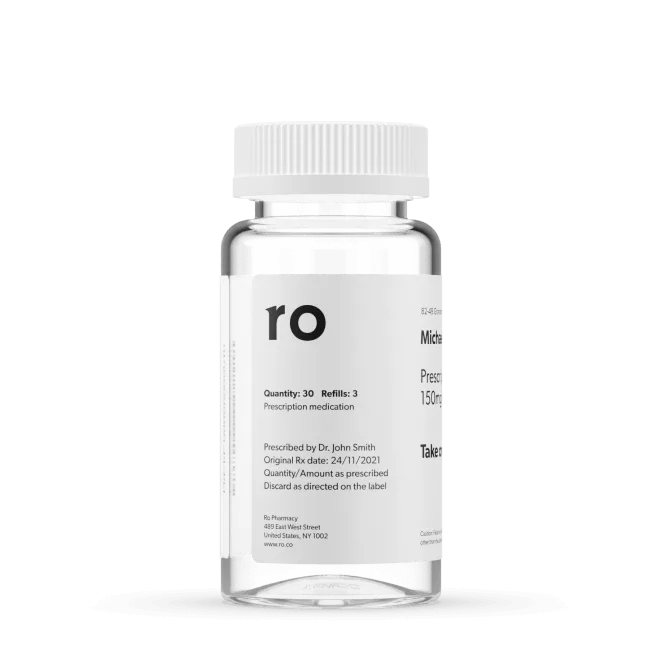
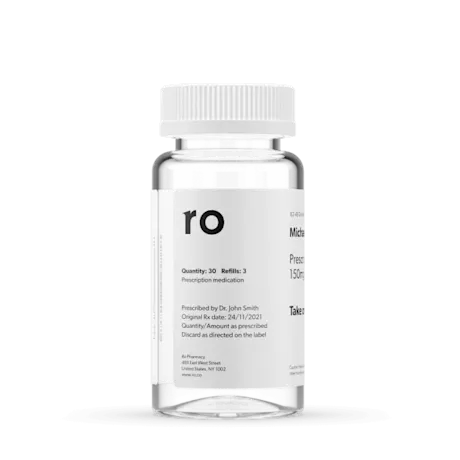
While oral minoxidil is considered an “off-label” treatment for male pattern baldness, it is FDA-approved (at higher doses) to treat high blood pressure.
Doctors began prescribing low-dose oral minoxidil tablets as a convenient, once-a-day hair loss treatment because in clinical trials studying higher doses of oral minoxidil for high blood pressure, 80% of patients experienced hypertrichosis—"elongation, thickening, and enhanced pigmentation of fine body hair,” including on the scalp.
Healthcare providers have the discretion to prescribe medications off-label if they believe it is an appropriate course of treatment for a particular patient.
Common questions
What should I expect when taking oral minoxidil?
Early results may be seen within a few months, but it could take longer to see the full effects
You may experience shedding during the first few weeks of treatment. This is normal and shouldn’t cause you to worry. Extra shedding will resolve as the new hair grows in (usually in about a month)
If you do not see improvement after 6 months of consistent use, you can message your provider to discuss adjusting your treatment plan
What are the most common side effects of oral minoxidil?
Common side effects can include low blood pressure (hypotension) and swelling in the legs (edema), among others. Some people experience headaches, although those typically improve over time. Others may experience additional hair growth on the face or body (hypertrichosis). This is the most common side effect of taking oral minoxidil, though the complaint is more common among women than men and is also more common when taking over 5 mg per day.
Side effects of oral minoxidil may be more pronounced when the drug is prescribed at higher doses. For full safety information (including the boxed warning) read through the Important Safety Information here.
What’s the difference between oral finasteride and oral minoxidil?
Oral finasteride is an FDA-approved prescription hair loss treatment, while oral minoxidil is considered an off-label prescription for hair loss. This means oral minoxidil is not FDA-approved for that particular use, but a provider can still prescribe it if they deem it safe and appropriate for the patient.
Oral minoxidil may be preferred by men who do not want to risk the known slight chance of sexual side effects from taking finasteride. Oral minoxidil and oral finasteride have different mechanisms of action to tackle hair loss. Your provider will recommend a treatment based on your medical history, lifestyle, and any particular treatment preferences or side effect aversions you may have.
What’s the difference between topical minoxidil and oral minoxidil?
Topical minoxidil is an FDA-approved hair loss treatment that does not require a prescription whereas oral minoxidil is considered an off-label prescription for hair loss and does require a prescription. “Off-label” means it’s not FDA-approved for that particular use, but can still be prescribed at the provider’s discretion.
Topical and oral minoxidil contain the same active ingredient. While there have not been clinical studies comparing their efficacy, there appear to be some benefits of using an oral treatment method vs. a topical treatment method, such as more precise dosing and better treatment adherence & consistency.
Some people may also benefit less from topical minoxidil due to lower levels of a specific enzyme in their hair follicles (follicular sulfotransferase). Oral minoxidil may be an effective alternative in this case, as the medication is absorbed systemically and is thought to be activated by the liver.
Some people may get results from topical minoxidil but still want to consider oral minoxidil due to negative experiences with the topical such as scalp irritation, treatment running down your neck before you can rub it in, or the hassle of applying treatment two times a day.
Using both topical minoxidil and oral minoxidil at the same time will not produce better results and therefore, is not recommended.
How should I take oral minoxidil?
You may take oral minoxidil with or without food
Consistent daily treatment is key to success, but oral minoxidil will not work better or faster if you take it more than once a day
Oral minoxidil should be kept dry and at room temperature (between 68 and 77 degrees F) in the packaging provided by the pharmacy. Please keep it away from children and pets.
Important safety information
What you should know before taking oral minoxidil.
Discover more
Feel your best, look your best
Explore our full range of products and prescription treatments. If appropriate, a provider will create a personalized treatment plan for prescription treatments.
Hair loss
More hair, less hassle. Get medication prescribed by a US-licensed healthcare provider. All from the comfort of home.
Testosterone support
You can't get this blend anywhere else—and it includes ashwagandha for testosterone support and magnesium to support muscular health.
Roman Daily Multivitamin
Doctor-formulated with 23 nutrients, Roman Daily is optimized to support men’s health and physical activity.
Premature ejaculation
We offer prescription medications and an OTC treatment that is clinically proven to help you last longer.
